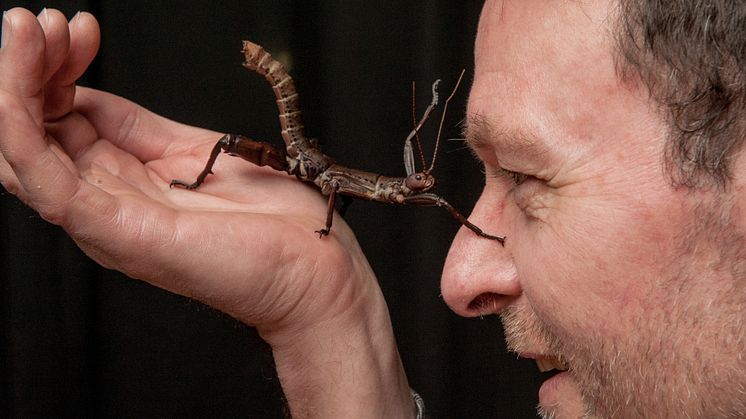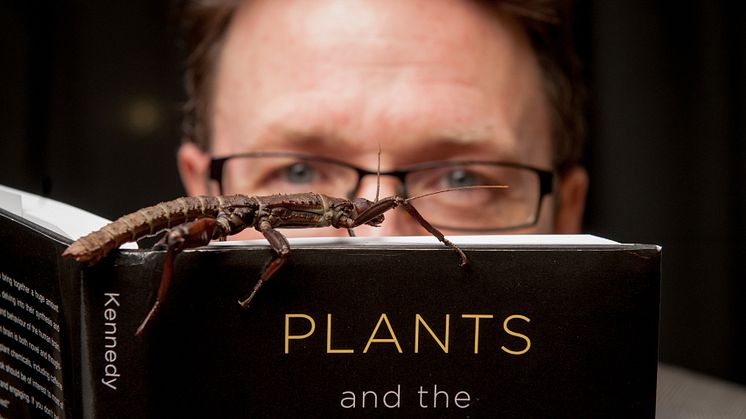
Press release -
Plants and the Human Brain - Why humans think like insects
Similarities between human and insect brains could be the reason why humans are attracted to plant-derived chemicals, such as tea, coffee, tobacco and drugs, according to a new book.
Despite many studies into how plant-derived chemicals interact with the brain and affect our behaviour, mood, mental and physical functions, there has been little research into why these chemicals have these effects at all. Professor David Kennedy, of Northumbria University, Newcastle, believes his new book, Plants and the Human Brain, answers the question as to why human brains are affected by plant chemicals.
Professor Kennedy, Director of Northumbria University’s Brain Performance and Nutrition Research Centre, believes that similarities between human and insect brains can explain why humans are affected by and, in some cases, attracted to plant-derived chemicals.
Professor Kennedy states that human brains are fundamentally just a more complex version of the insect brain, with many striking similarities and patterns of behaviour. These include the use of exactly the same neurotransmitters, receptors and physiological processes.
He explained: “Plants evolved to interact with the brains of insects, their closest neighbours, in order to survive, by attracting them for pollination, or repelling them or dissuading them from eating plant tissue. Therefore, plant chemicals that have evolved to target the brains of insects then have the same effects on the human brain.
“Humans have a long and close relationship with plant-derived chemicals that alter brain function. Most of us reach for a cup of tea or coffee in the morning, many smoke tobacco; a few consume heavyweight drugs such as cocaine, morphine or cannabis.
“If you give the chemicals we think of as social drugs to insects, the change in behaviour is often strikingly similar to that seen in humans. For instance, caffeine and amphetamine make insects more active and less sleepy, LSD makes them confused, cocaine makes bees dance, and morphine kills insect pain. And all of these chemicals also stop insects from eating plant tissue and prove fatal to them at higher doses.”
Professor Kennedy’s book, published by Oxford University Press, explains some of the similarities in the genetics of plants and humans and how these similarities impact on human mental function.
“This book as a whole is novel because it is the first time anyone has tried to answer the question of ‘why’ rather than ‘how’ plant chemicals affect the human brain and behaviour,” said Professor Kennedy.
“Plants and humans share about 3,000 ancestral genes, which underlie a host of unexpected similarities.
“For example, plants synthesise and use most of the ‘neuro-chemicals’ that are found in the human brain, sometimes in concert with similar receptors that allow the chemicals to relay messages. The two also share the same communication processes within cells, and this factor in particular may provide the avenue for the brain performance and health benefits seen after we eat fruit and vegetables.
“We are not as different from plants as we would like to think, and our brains are, in most respects, the same as an insect brain – albeit much more complex.”
Plants and the Human Brain, by David O. Kennedy is published by Oxford University Press and will be released on February 7th in the USA and during March in the UK.
For more information or to purchase the book, visit: http://www.amazon.com/Plants-Human-Brain-David-Kennedy/dp/019991401X/ref=sr_1_1?ie=UTF8&qid=1389094826&sr=8-1&keywords=plants+and+the+human+brain
Topics
Categories
Northumbria is a research-rich, business-focussed, professional university with a global reputation for academic excellence. To find out more about our courses go towww.northumbria.ac.uk
If you have a media enquiry please contact our Media and Communications team at media.communications@northumbria.ac.uk or call 0191 227 4571.











